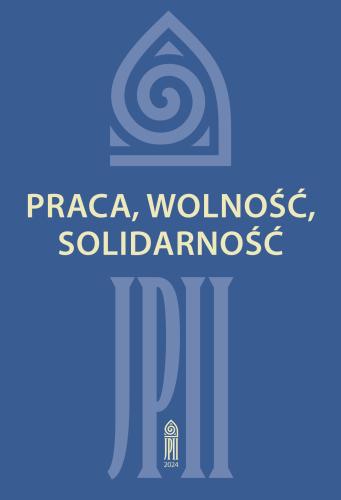Ethics and public policy center. John Paul II: human work and the work of the Church
Streszczenie
This lecture explores St. John Paul II’s profound reflections on the dignity of human work and the mission of the Church, drawing from his key social encyclicals. Firstly, it examines “Laborem Exercens”, where John Paul II centers the phenomenology, theology, and spirituality of human work, affirming that through work, each person participates in God’s creative action. The encyclical’s personal tone, inspired by the Pope’s experience as a laborer, articulates work as a path to human fulfillment and spiritual growth, stressing the priority of labor over capital and the moral imperative of workers’ rights. Next, building on “Centesimus Annus” to the evolution of Catholic social doctrine and the Eucharist as the foundation of the Church, the analysis follows John Paul II’s shift from viewing wealth as static to recognizing wealth’s creation through human ingenuity, with poverty redefined as exclusion from creative networks. The lecture highlights the importance of education and economic participation as antidotes to poverty. Finally, it draws from “Ecclesia de Eucharistia” to present the Church’s principal work: evangelization and the celebration of the Eucharist. The address underscores that true worship and missionary discipleship are inseparable, and the celebration of the Eucharist empowers the Church’s mission in the world. In John Paul II’s vision, human work and the Church’s work form a unified vocation—a call to fulfill human dignity through creative labor, fellowship, and faith. The legacy offers a Christian humanism that integrates work, social justice, and sacramental life.



